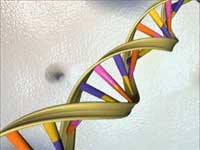Just In
- 1 hr ago

- 2 hrs ago

- 6 hrs ago

- 10 hrs ago

Don't Miss
- Technology
 OnePlus Ace 3 Pro Leak Hints at New Design; Expected Launch, Specifications We Know So Far
OnePlus Ace 3 Pro Leak Hints at New Design; Expected Launch, Specifications We Know So Far - News
 Euro Zone Economy Faces Risks Without Interest Rate Cuts: ECB Member Warns
Euro Zone Economy Faces Risks Without Interest Rate Cuts: ECB Member Warns - Sports
 IPL 2024: More pressure on Hardik Pandya as Dale Steyn suggests MI captain to step up and help Jasprit Bumrah
IPL 2024: More pressure on Hardik Pandya as Dale Steyn suggests MI captain to step up and help Jasprit Bumrah - Movies
 Coachella: AP Dhillon's Tribute To Sidhu Moosewala Goes Viral Amid Guitar Controversy, Fans REACT To VIDEO
Coachella: AP Dhillon's Tribute To Sidhu Moosewala Goes Viral Amid Guitar Controversy, Fans REACT To VIDEO - Finance
 Rs 14/Share Dividend: Stockbroking Co To Consider Bonus Share, Shares Up 126% In 180-Days
Rs 14/Share Dividend: Stockbroking Co To Consider Bonus Share, Shares Up 126% In 180-Days - Travel
 Journey From Delhi To Ooty: Top Transport Options And Attractions
Journey From Delhi To Ooty: Top Transport Options And Attractions - Education
 IIIT-Bangalore Introduces PG Diploma In Digital Product Design And Management
IIIT-Bangalore Introduces PG Diploma In Digital Product Design And Management - Automobiles
 Jawa Yezdi Expands Mega Service Camps To 32 New Cities, Focusing On Tier-II And Tier-III Regions
Jawa Yezdi Expands Mega Service Camps To 32 New Cities, Focusing On Tier-II And Tier-III Regions
Gene Test That Can Help Prevent Heart Disease

A genetic test has been developed which can help take action to prevent heart disease, say experts.
Three Australian experts had called for more support to screen families with familial hypercholesterolaemia (FH), which involves a defective gene that prevents liver cells from taking up cholesterol from the blood.
The call follows reports that UK authorities may soon recommend at-risk children under the age of 10 years be screened for the FH gene.
"[The
UK
proposals]
represent
an
approach
we
would
like
to
see
in
Australia," ABC
online
quoted
Dr
David
Sullivan,
president
of
the
Australian
Atherosclerosis
Society,
who
spoke
at
a
forum
organised
by
the
Australian
Science
Media
Centre
in
Adelaide.
Sullivan says FH affects up to 1 in 500 Australians but only 7percent of people with the condition are adequately treated.
FH increases the chance of early heart attack and stroke and is probably causing about 10 percent of heart attacks in people under age 60, he says.
Sullivan says half of the men with the usual form of FH develop coronary heart disease before they are 50.
He says a genetic test could help identify FH early so people could take action to prevent heart disease such as improving diet, preventing smoking, or undertaking drug treatment.
Sullivan says the UK has been researching FH for a relatively long time and more work is needed to tailor a screening program to the specific mutations and circumstances relevant to Australia.
Some experts say while prevention is a laudable aim, genetic tests may not necessarily trigger the preventive health measures people expect.
"Overall,
logically
it
sounds
beneficial
but
we
already
know
people
have
risks
of
heart
disease
and
are
not
able
to
change
their
behaviour," says
social
scientist
Associate
Professor
Sandra
Taylor
of
Central
Queensland
University.
-
 wellness7 Natural Cures For Atherosclerosis
wellness7 Natural Cures For Atherosclerosis -
 wellnessBrush Your Teeth To Cut Heart Disease Risk
wellnessBrush Your Teeth To Cut Heart Disease Risk -
 disorders cureVitamin B Deficiency Is Harmful II
disorders cureVitamin B Deficiency Is Harmful II -
 healthWhen Is Total Solar Eclipse 2024? Let's Debunk 3 Common Food Myths About Surya Grahan
healthWhen Is Total Solar Eclipse 2024? Let's Debunk 3 Common Food Myths About Surya Grahan -
 insyncCelebrity Chef Ajay Chopra Launches Plaka, From Potlam Biryani To Taco-Bab, Get Ready To Taste Heaven On Plate
insyncCelebrity Chef Ajay Chopra Launches Plaka, From Potlam Biryani To Taco-Bab, Get Ready To Taste Heaven On Plate -
 insyncThese Are The 10 Oldest Food In The World And We Still Love To Eat Them Today
insyncThese Are The 10 Oldest Food In The World And We Still Love To Eat Them Today -
 insyncValentine's Day 2024: 10 Hottest Indian Food Jodis That Are A Must Have If You Are Celebrating Love
insyncValentine's Day 2024: 10 Hottest Indian Food Jodis That Are A Must Have If You Are Celebrating Love -
 insyncRose Day 2024: Easy To Make Rose-Themed Cake To Woo Your Valentine On V-Day
insyncRose Day 2024: Easy To Make Rose-Themed Cake To Woo Your Valentine On V-Day -
 health10 Cancer Fighting Foods That Help That Play Significant Role In Supporting Body's Natural Defences
health10 Cancer Fighting Foods That Help That Play Significant Role In Supporting Body's Natural Defences -
 insyncLove Sushi? 10 Fun And Fishy Facts About That Roll Into This Culinary Delight
insyncLove Sushi? 10 Fun And Fishy Facts About That Roll Into This Culinary Delight -
 insyncThe Surprising History Of Ketchup: Uncovering Its Roots Of Trade, Taste, and Transformation
insyncThe Surprising History Of Ketchup: Uncovering Its Roots Of Trade, Taste, and Transformation -
 pregnancy parentingMaternal Health Awareness Day 2024: 15 Foods That Boost Maternal Health
pregnancy parentingMaternal Health Awareness Day 2024: 15 Foods That Boost Maternal Health


 Click it and Unblock the Notifications
Click it and Unblock the Notifications



